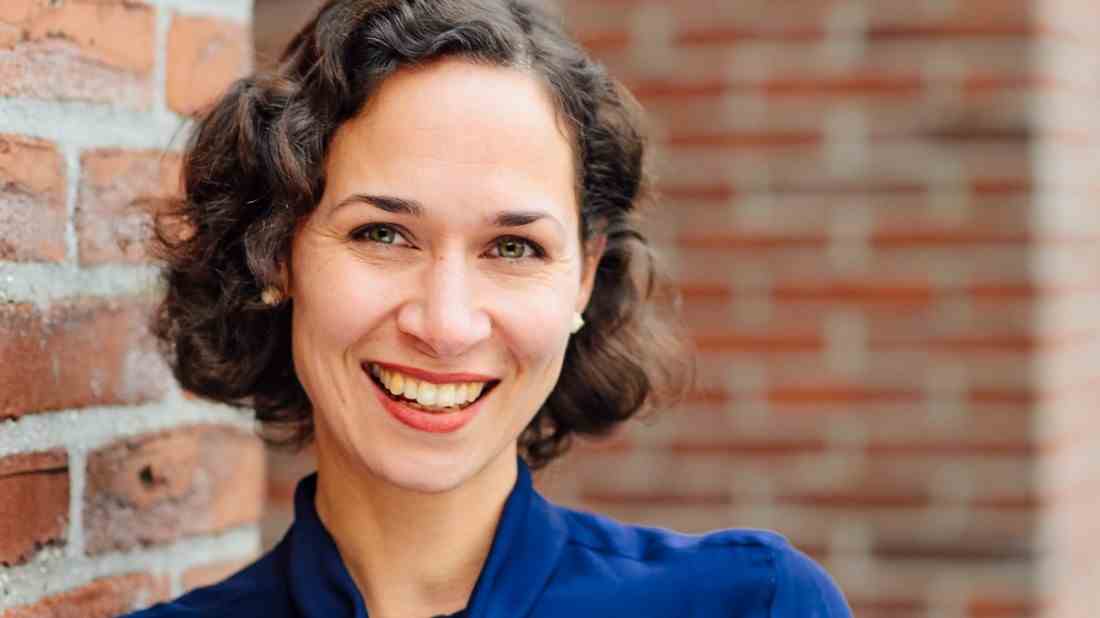“Let man be noble, helpful and good!” When Johann Wolfang von Goethe wrote this appeal in 1783, the American War of Independence was just coming to an end. Whether Goethe had in mind the people who fought, suffered and fled in this war, but also supported and protected one another, is uncertain.
What is certain, however, is that many citizens in the district of Ebersberg heard the appeal and took care of those who fled the Ukraine war. The overwhelming majority of around 1,800 refugees have found accommodation in private households. But what impact do these noble gestures have on the work of those who support refugees on a full-time basis and on a voluntary basis?
“My work is very different now”
Tobias Vorburg heads the association “side by side” in Markt Schwaben. He helps those seeking protection to overcome bureaucratic hurdles, for example when applying for asylum or looking for an apartment. The association also offers learning support and facilitates intercultural exchange.
“My work is very different now,” says Vorburg. “Because so many people are housed privately, it’s difficult to reach them.” Often he does not even know where someone is housed. With central or decentralized accommodation, as was common at the time of the large refugee movements in the years after 2015, things were different. “You could simply call and find out: Ah, so and so is here and may need this or that support,” says Vorburg.
Tobias Vorburg from “Page for Page” hopes that all refugees will have the opportunity to find private accommodation.
(Photo: Christian Endt)
“Side by Side” has adapted to this by offering open consultation hours and biweekly Sunday meetings. Both offers are “well received,” says Vorburg: “Sundays are always full and there is always someone there during office hours.”
Vorburg is pleased that the accommodation of the refugees in private households is working and also praises the district office: “They are doing a really good job and are keeping the bureaucracy in check.” At the same time, he hopes that the unequal treatment of refugees from different countries and cultures will end. “It worked for the Ukrainians, that’s nice. But many others just sit around in shelters forever, it’s just not good for them.” Vorburg hopes that private accommodation will soon work for other people too.
Gassner has great respect for those who took in refugees
Janika Gaßner also finds the accommodation in private households generally good. She is the volunteer coordinator for asylum at the Catholic District Education Agency (KBW) and has great respect for the people who have taken in refugees. “Living in a shared apartment with someone is difficult,” says Gassner. “And there’s a selection process. Here people just take in total strangers, that’s impressive.”
However, she also has a few concerns: “You need a certain set of tools to be able to deal with it.” After all, it could be that the guests are traumatized – how do you deal with that properly? But even minor cultural differences can lead to conflicts.
One of the ways in which the work of Gaßner and the KBW has changed is the creation or imparting of intercultural educational opportunities. “We can establish contact with supervisors so that they can mediate in the event of a conflict,” says Gassner. It is often enough to get an explanation for a disruptive behavior in order to classify it better.
But Gassner’s work has also changed in other areas. “I used to be able to find an offer for a specific need – that’s no longer possible,” says the coordinator. There are too many people who need help and who are not easy to track down. Now it’s more about “knowing someone who knows someone. I have to be a walking database.”
Knowing someone helps, for example, at the online exchange meetings where volunteers can exchange information and talk to each other. “These meetings now take place every seven days, not every fourteen,” explains Gassner. In addition, she now always invites an input provider to the meetings, for example from the job center, in order to respond to concerns and questions.
The meeting café offers a break for the volunteers and a change of scenery for the refugees
Finally, there are other offers at the KBW that are intended to help refugees arrive and to relieve volunteers who look after or have taken in people. On the one hand, the parent-child groups of the Bildungswerk are also open to Ukrainians. “Parents can exchange ideas and children can find new playmates,” says Gassner.
The meeting cafés were also newly launched – together with the Ebersberg Foreigners’ Aid Service: Here you can relax with coffee and cake and meet new people. “That’s also good because you don’t have to sit on top of each other all the time, so there’s a change of scenery,” says Gassner. This offer is also well received. In view of the willingness to help in Ebersberg, good Goethe’s heart should rise.
Additional Information: About the site Interested parties can contact the association from “side by side”. The meeting cafés always take place on Monday mornings in the KBW at Heinrich-Vogel-Strasse 4 and on Wednesdays and Fridays in the Auslandshilfe Ebersberg at Von-Feury-Strasse 10. The exchange meetings of the KBW take place every Wednesday at 7 p.m zoom instead, the link always stays the same.

